A Comprehensive Appen Company Review of Their Data Solutions for Businesses

As machine learning models become more sophisticated, the need for accurate data labeling intensifies. However, the traditional method of manual labeling can be a bottleneck, hindering rapid model deployment.
This blog explores crowdsourced data labeling solutions, a method that leverages a distributed workforce to accelerate the labeling process. We’ll delve into Appen company review, a major player in this space, to see if their approach aligns with the needs of your machine learning project.
How to Choose a Dataset Labeling Vendor?
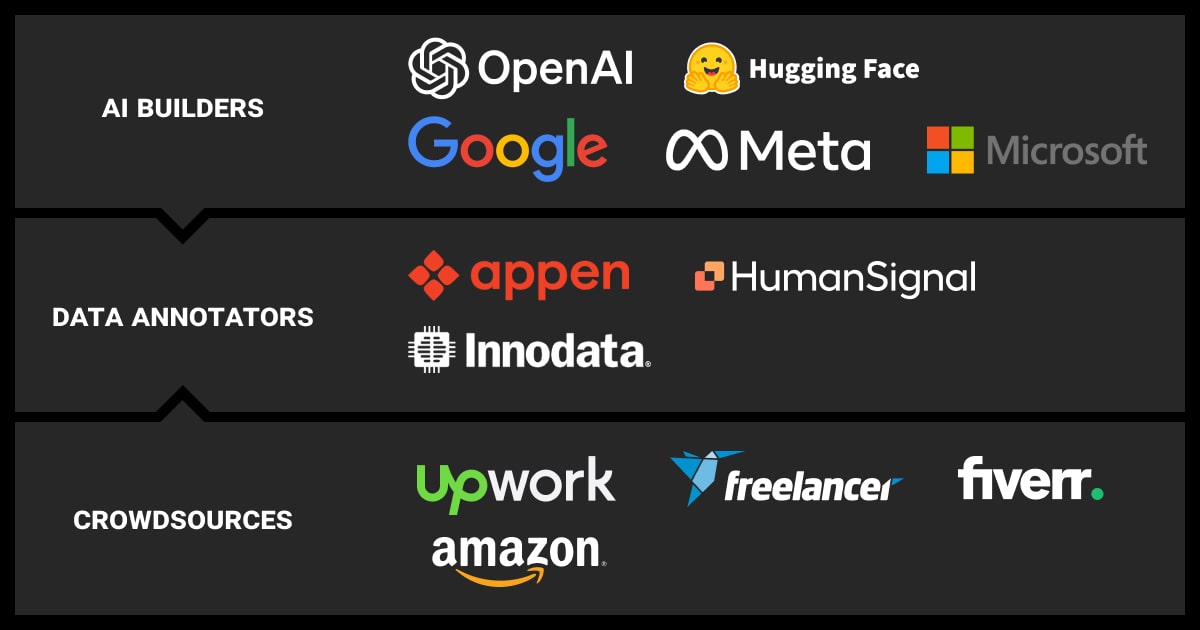
Machine learning projects rely heavily on labeled data for both training and evaluating models. Acquiring this data can be achieved through two main methods: internal labeling by your team or outsourcing the task to a specialized vendor.
If you’re considering the second approach and Appen is one of the vendors on your radar, this Appen review can be helpful in making an informed decision. Dedicating hours of research, we aimed to provide you with the most informative analysis on the data labeling provider to save your time and help you determine if crowdsourcing with Appen aligns with your project’s requirements.
The key factors to consider when choosing a data labeling vendor include:
Service and products
Dataset types
Data annotation tools
Integrations
Annotation process
Quality assurance
Pricing models
Security and data compliance
We’ll look at each factor in more detail.
Appen Overview
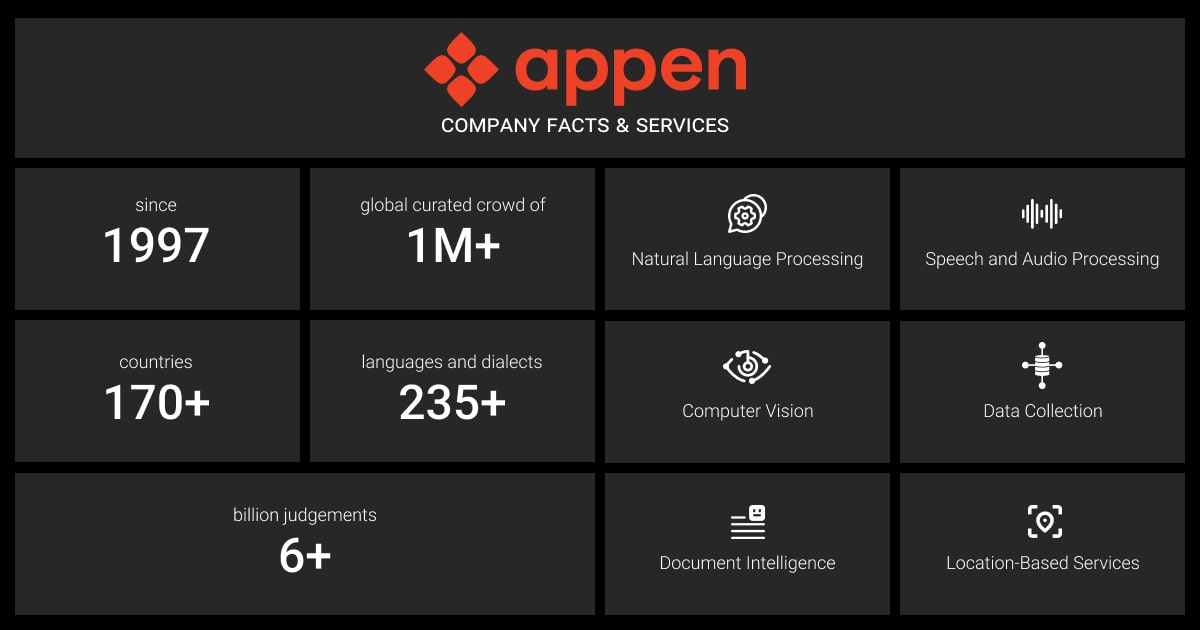
Founded in 1996 by linguist Dr. Julie Vonwiller, Appen Ltd (Appen) is an Australian company that has become a key player in the field of human-annotated data for machine learning and artificial intelligence (AI). Over the years, Appen has consistently grown its revenue by adapting to the evolving technological landscape.
The company focuses on providing reliable human-annotated datasets for AI development. This has attracted clients from various sectors, including tech giants and automotive manufacturers.
Here’s a quick Appen company overview:
Headquarters: Chatswood, New South Wales, Australia.
Global network of crowdsourced workers. Appen leverages a unique crowdsourcing model, employing a network of over 1 million contributors worldwide. This global workforce allows Appen to offer its services in over 130 countries and 180 languages.
Industry expertise. With more than 25 years of experience, Appen offers data solutions and services tailored to various industries like automotive, finance, government, retail, and healthcare. The company has operations strategically located in Australia, the United States, China, and the Philippines.
Appen Services & Products
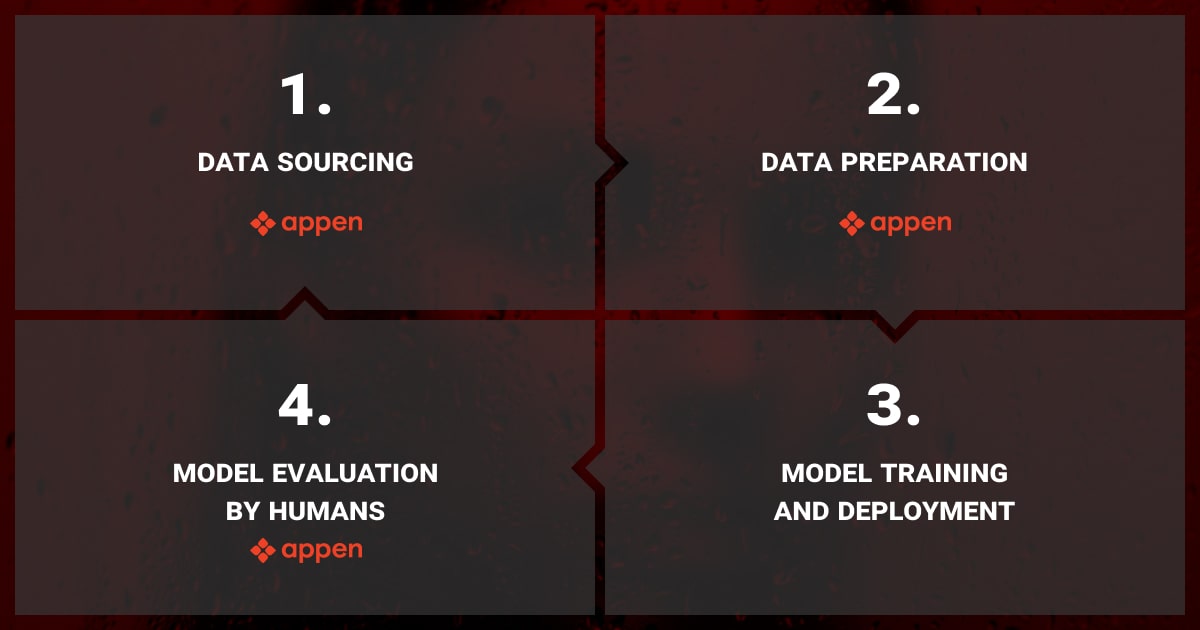
Appen provides a comprehensive suite of data collection, annotation, and evaluation services for AI development. The company also offers an end-to-end platform to support the entire AI development lifecycle. In this Appen company review, we’ll take a look at their key offerings.
Services:
Data Collection. Appen sources various data types for AI training, including text, audio, video, and geospatial data. This data is suitable for building applications like natural language processing (NLP), computer vision (CV), and location-based services.
Data Annotation. Appen provides human-in-the-loop annotation services through a crowdsourcing platform. They offer expertise in various domains like NLP, speech processing, and computer vision.
Search Relevance. Appen enhances search engine algorithms through services like model evaluation, content moderation, and related search refinement.
Reinforcement Learning (RLHF): Appen offers RLHF services specifically for developing large language models (LLMs).
Document Intelligence. Appen helps improve document processing AI through data curation and annotation for tasks like summarization and data extraction.
Location-Based Services. Appen strengthens location-based services with geospatial data annotation, improving accuracy in mapping and location intelligence.
Pre-Labeled Datasets. Appen offers a library of over 270 pre-labeled audio, image, video, and text datasets in over 80 languages, accelerating AI project timelines.
Data for Large Language Models (LLMs): Appen provides custom data solutions for LLM builders, including datasets for fine-tuning, evaluation, and AI chat feedback.
Platform:
Appen’s global crowdsourcing network exceeds 1 million contributors across 170+ countries. This workforce is segmented into three tiers based on project security requirements:
Crowdsourced (managed by the client)
Crowdsourced (managed and curated crowd solutions by Appen)
In-house offices for extra level of security monitoring
Appen’s crowdsourcing platform offers access to a diverse global workforce for various data-related tasks, including:
Data Collection. Ethically sourced datasets in various formats (text, audio, video, geospatial) for your AI project.
Data Annotation. A skilled crowd trained to accurately annotate your text, video, image, and audio data.
Transcription. Secure, accurate, and fast transcription services for documents, scanned documents, and website content.
Translation. Multilingual specialists assess the fluency and relevance of text generated by NLP models.
Speech Modeling. Provides you with data suitable for speech recognition, speech synthesis, and natural language understanding (NLU) tasks.
Model Evaluation. Validate your models across a wide range of real-world use cases and demographics.
The platform offers features like project management, performance monitoring, data quality control, and security management, enabling data scientists to automate workflows and manage data labeling tasks efficiently. It also provides access to a curated pool of subject-matter experts (SMEs) to get the specific data you need for your project.
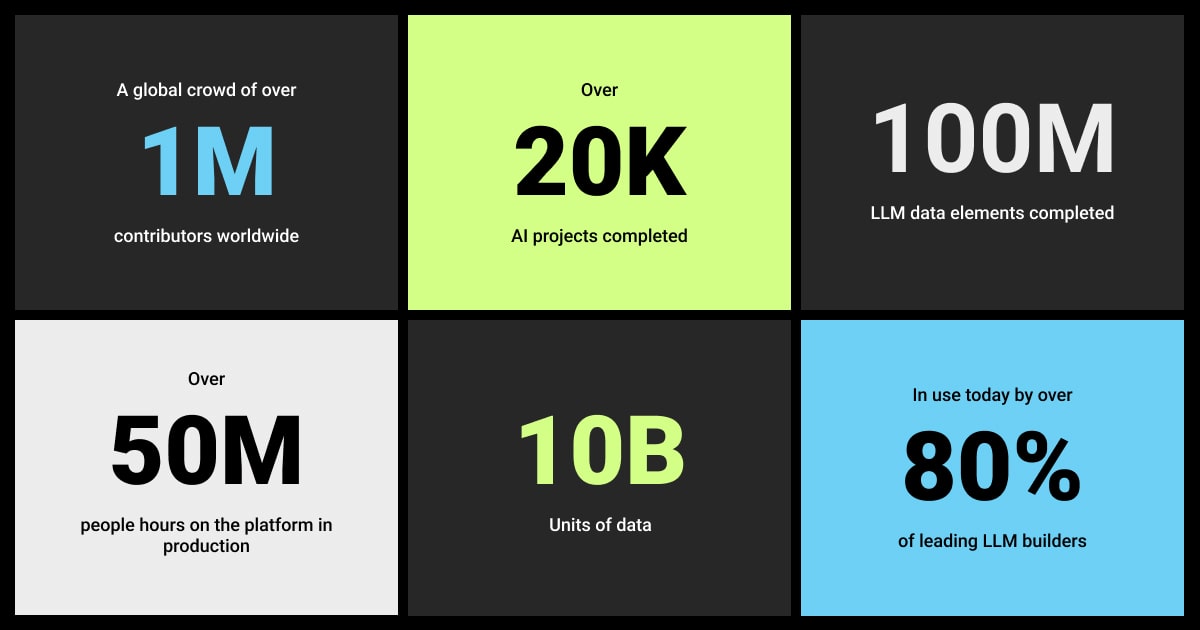
Appen Dataset Types
Appen caters to a wide range of ML needs by offering various dataset types. Text data, encompassing emails, documents, and chat conversations in over 80 languages, can be processed and annotated. They also handle audio data, like phone calls and voice commands, providing transcriptions and labels for aspects like speaker identification.
Appen’s expertise extends to visual data as well, including image annotation for objects and scenes, along with facial recognition. Even video data, from security cameras to user-generated content, can be analyzed for object tracking and activity recognition.
Supported Data Formats:
Comma-separated values (CSV)
Tab-separated values (TSV)
Microsoft Excel spreadsheets (XLSX)
OpenDocument Spreadsheets (ODS)
Encoding:
All files must be saved using UTF-8 encoding.
Formatting:
Each column in your data file must have a clear and descriptive header.
Appen Data Annotation Tools
Appen doesn’t directly offer its own data annotation tools for public use. However, they do provide a data annotation platform as part of their services. This platform leverages a combination of human annotators and machine learning to ensure high-quality training data for AI models.
Besides, Appen can integrate with client-provided data annotation tools, but these might not always be the most scalable solution. If a project's workload surges without a corresponding increase in efficiency from the client's tools, Appen may need to switch to their own platform to handle the larger volume.
Additionally, Appen claims the ability to automate tasks using Large Language Models (LLM) based on a successful project with a retail client. However, it’s unclear whether this LLM automation is a built-in feature of their platform or a custom solution developed for a specific client.
Overall, Appen acts as a data annotation partner rather than a provider of standalone tools. They offer a managed service that utilizes their platform and a global network of annotators to deliver training data for your AI projects.
Appen Integrations
Appen offers two main integration options: API and Live Large Language Model (LLM) APIs.
API Integration allows you to automate tasks related to Appen’s data annotation services. Here’s what you can do with it:
Programmatically create, edit, and launch annotation jobs.
Download results from completed jobs.
Integrate with your existing workflow.
Appen uses a RESTful API with JSON data format and key-based authentication. They recommend that you first try out the process manually before setting up the API.
Live LLM API Integration is for a more advanced use case. It allows you to connect your Large Language Models (LLMs) with Appen’s platform. This enables you to:
Test your LLMs against real-world data.
Gather valuable insights to improve your models.
Create a feedback loop with human experts to fine-tune your LLM.
This integration is helpful to ensure your LLMs are accurate, relevant, and aligned with your specific needs.
Appen Annotation Process
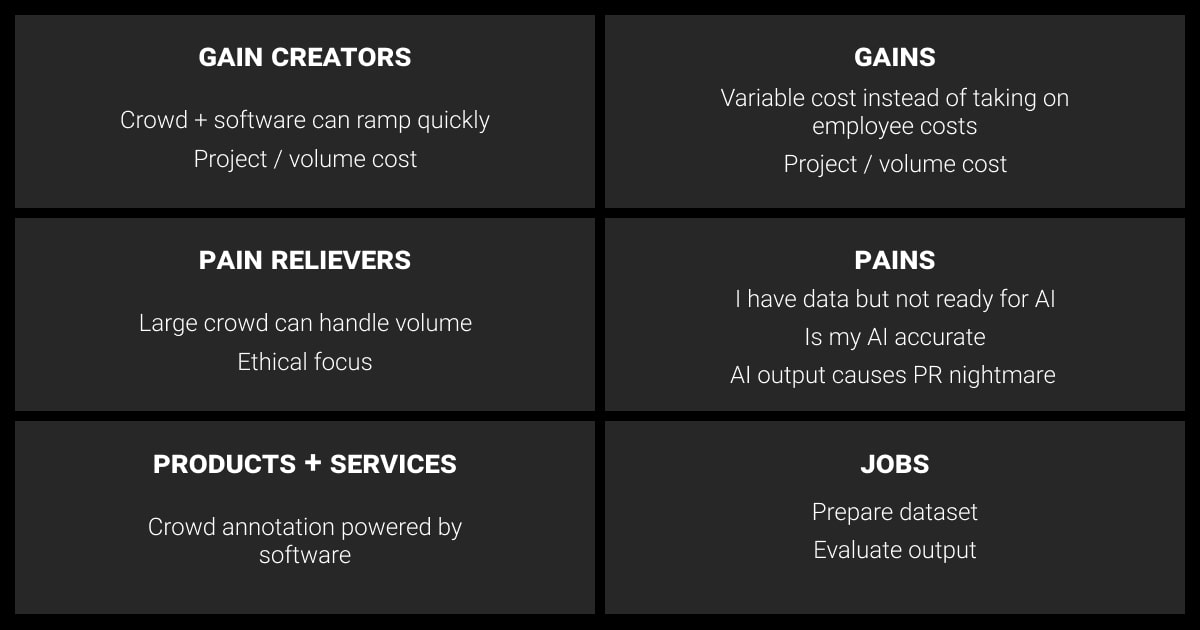
Appen’s data annotation platform uses customizable workflows to efficiently manage the process from start to finish. Their annotation process consist of the key steps:
Onboarding and Training: A dedicated Customer Success Manager gets your team familiar with the platform, ensuring they can quickly create and launch annotation jobs.
Setting Up Annotation Jobs: You can choose from customizable templates to set up your job. This involves defining the type of data (text, image, audio, etc.) and the specific annotations required (e.g., tagging objects in images, classifying sentiment in text). Jobs can be set up directly through Appen’s user interface or their API (for programmatic control).
Data Annotation by Global Contributors: Appen sends your jobs to a global network of contributors qualified for the specific task. The platform facilitates the annotation process, likely with tools and guidelines to ensure consistency.
Monitoring and Adjustment: You can monitor the progress of your jobs and review incoming data to see if adjustments are needed. This might involve checking for clarity in the instructions or making minor tweaks to the annotation requirements.
Data Download and Reporting: Once the annotation is complete, you can download the labeled data for use in your AI or machine learning projects. Appen provides dashboards and reports to help you optimize your jobs for factors like cost, data quality, and overall efficiency.
Overall, Appen’s workflow approach aims to streamline data annotation by providing a user-friendly platform, a global workforce, and tools to manage and monitor the entire process.
Appen Quality Assurance (QA)
Appen ensures high-quality training data for your AI project through a multi-layered QA process. They customize the approach to your needs and leverage a global network of contributors.
Customizable Solutions. They offer a tailored QA plan with human expertise and advanced options like real-time learning for continuous improvement.
Seamless Workflow. Appen integrates your team, labeling tools, and workers for a smooth process. Choose automated or managed solutions for performance tracking and in-depth quality analysis.
Rigorous Quality Control. They implement multiple checks to ensure top-notch data. From pre-production assessments to post-production analysis, Appen identifies and addresses potential issues throughout the process.
AI-Powered Crowd Management. Appen provides access to a network of over 1 million contributors and AI that matches tasks to worker skills and streamlines labeling for better results.
Detailed Quality Reports. You can track project progress with comprehensive dashboards, which track labeled units (accepted, modified, rejected) and overall accuracy. Crucially, they also segment data by annotator, allowing you to identify individuals who might need more training or removal based on metrics like rejection rates.
Appen Pricing
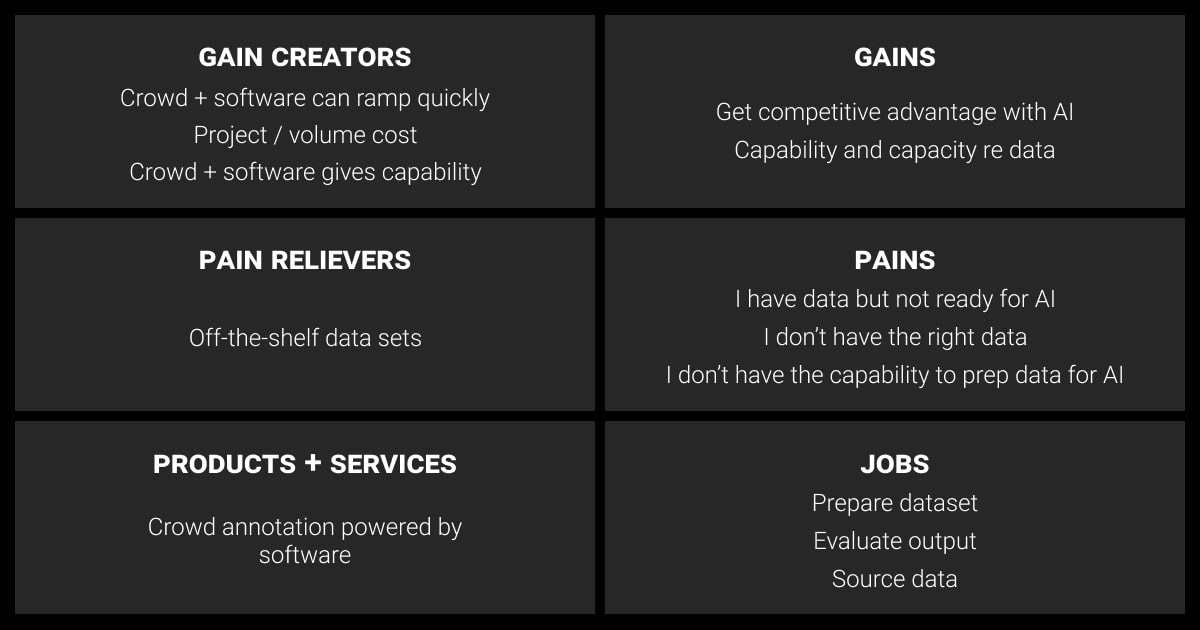
Appen offers flexible pricing. They claim unit-based and hourly pricing are essentially interchangeable. Unit-based pricing may expedite completion, but potentially at the cost of quality. Complex tasks involving LLMs might require longer work time per unit. However, they can still track costs per unit.
Also, there are no minimum budget or time requirements. However, Appen emphasizes the importance of consistent data flow to ensure annotator work availability.
The company doesn’t publicly advertise a set pricing plan for clients. Yet, their pricing seems to be based on a project-by-project basis, with factors like:
Type of work. The complexity of the tasks like data labeling, sentiment analysis, or speech recognition will influence the cost.
Volume of data. Larger datasets tend to cost more to process.
Accuracy requirements. Higher accuracy standards may lead to a higher price tag.
Worker location. Appen pays workers based on location, so the cost of labor can vary depending on where the work is done, with European native speakers typically commanding a higher price.
Free trial. During the proof of concept phase, you can label 1,000 objects for free on their platform.
However, they do provide a formula for clients to estimate project costs on their Success Center. This formula includes factors like:
Judgments per row of data
Pages of work
Price per page
There’s also a buffer and transaction fee added to the final estimated cost. Overall, while specific pricing isn’t available publicly, Appen offers a way for clients to estimate project costs based on their needs.
Appen’s basic formula for calculating the estimated job cost:
(Judgments per row * (Pages of work * Price per page)) + transaction fee + buffer = estimated job cost
Appen Security and Data Compliance
Based on Appen reviews, the company prioritizes data security and compliance, offering a secure environment for handling sensitive information. They achieve this through a combination of industry certifications and internal practices.
Compliance. Appen adheres to various regulations including GDPR (governing data privacy in the EU), HIPAA (protecting health information in the US), and SOC 2 Type II (ensuring secure data management).
Certifications. Appen is ISO 27001 certified, an international standard for information security management. This signifies robust security practices across their organization.
Focus on Sensitive Data. Appen understands the importance of safeguarding confidential customer data, such as PII, PHI, financial records, and government information. They ensure they have the necessary tools and resources to handle such sensitive data securely.
Moreover, Appen restricts data access. They don’t grant annotators direct storage access. Instead, a temporary link (signed URL) is generated for each annotation task. This allows “view-only” access within the annotation platform, preventing downloads or later access. However, it can’t fully stop screenshots or photos of the data.
Top Appen Alternatives
To broaden your options beyond this Appen company review, consider these three data labeling companies:
Label Your Data
Label Your Data accelerates AI development for data scientists and operations managers. Our global experts deliver high-quality training data for computer vision & NLP tasks. We offer a free pilot, flexible pricing, and tool-agnostic teams to streamline your model training. Plus, your data is secured by industry certifications (PCI DSS, ISO 27001, GDPR, CCPA).
SuperAnnotate
SuperAnnotate is an AI-powered image annotation platform that helps businesses build, fine-tune, and manage machine learning models faster using high-quality training data. They offer an annotation tool, access to a global marketplace of vetted annotators, and data management features. SuperAnnotate also provides tools for LLM/GenAI training data. Learn more in our SuperAnnotate review.
Humans in the Loop
Humans in the Loop specializes in computer vision annotation tasks for AI projects (self-driving cars, medical imaging). They offer data collection, annotation, real-time feedback integration, and free ML datasets. Partnering with leading platforms ensures a smooth workflow.
FAQ
Is Appen a good company? Does it offer a user-friendly platform for project management and data access?
According to our research and multiple Appen company reviews, the company offers a scalable platform for AI data collection with a vast workforce, but user-friendliness for project management and data access might vary.
Can Appen scale its data collection efforts to meet the growing needs of my ML project?
Yes, Appen boasts a global workforce and scalable solutions specifically designed to handle growing data collection needs for ML projects.
How does Appen ensure the quality of data provided by its crowded workers?
Appen uses test questions and data validation tools to maintain high quality from a large workforce. Learn more in our comprehensive Appen review.
Written by
Karyna is the CEO of Label Your Data, a company specializing in data labeling solutions for machine learning projects. With a strong background in machine learning, she frequently collaborates with editors to share her expertise through articles, whitepapers, and presentations.

